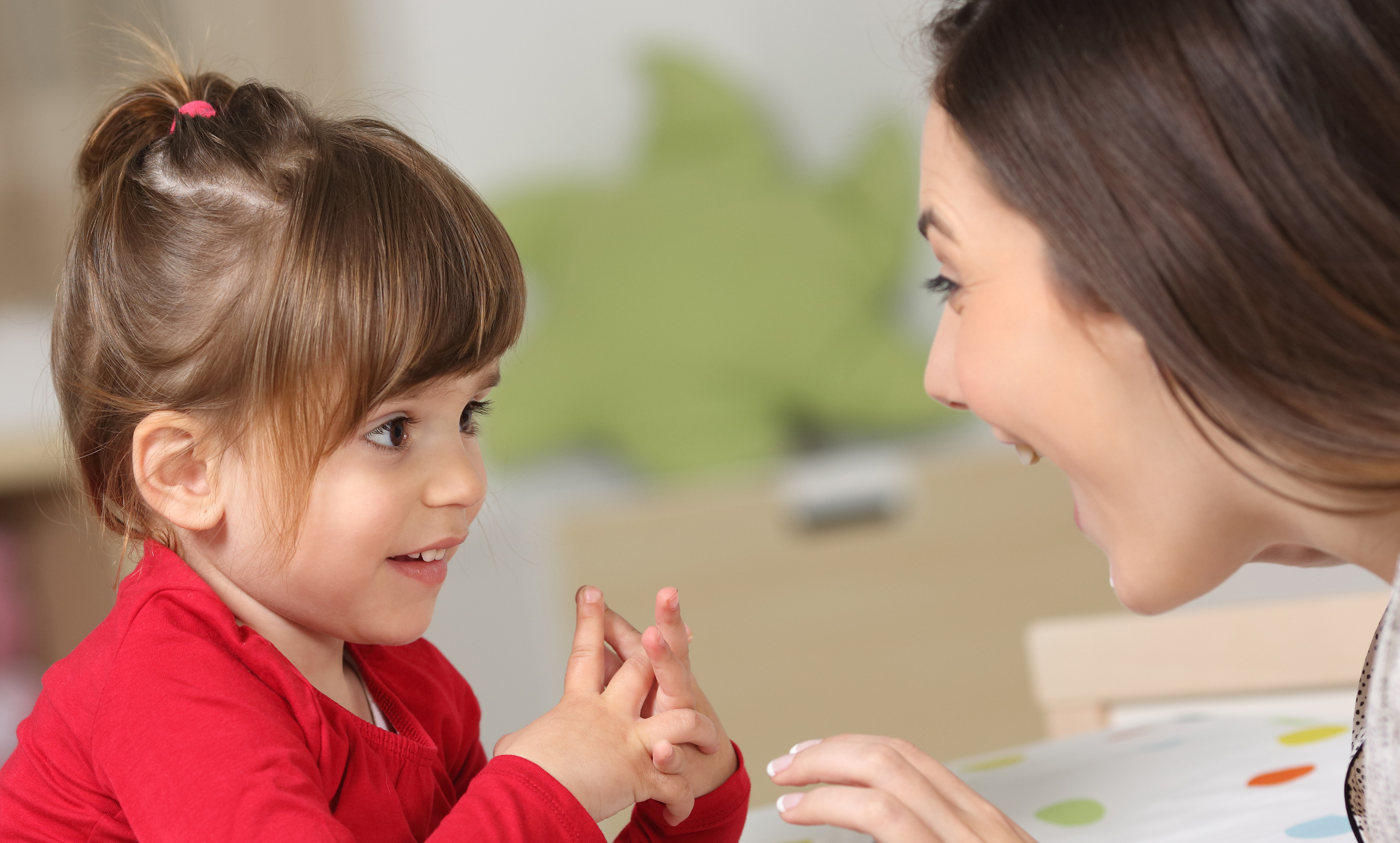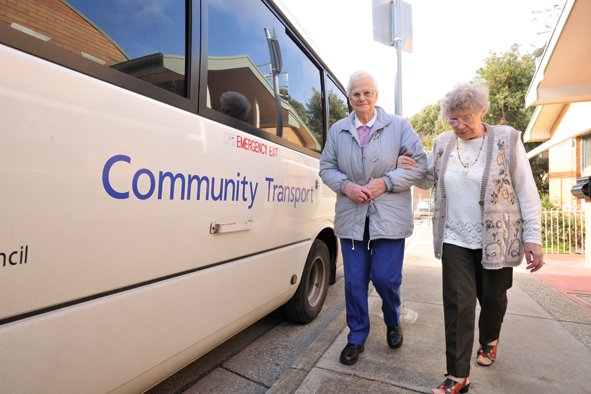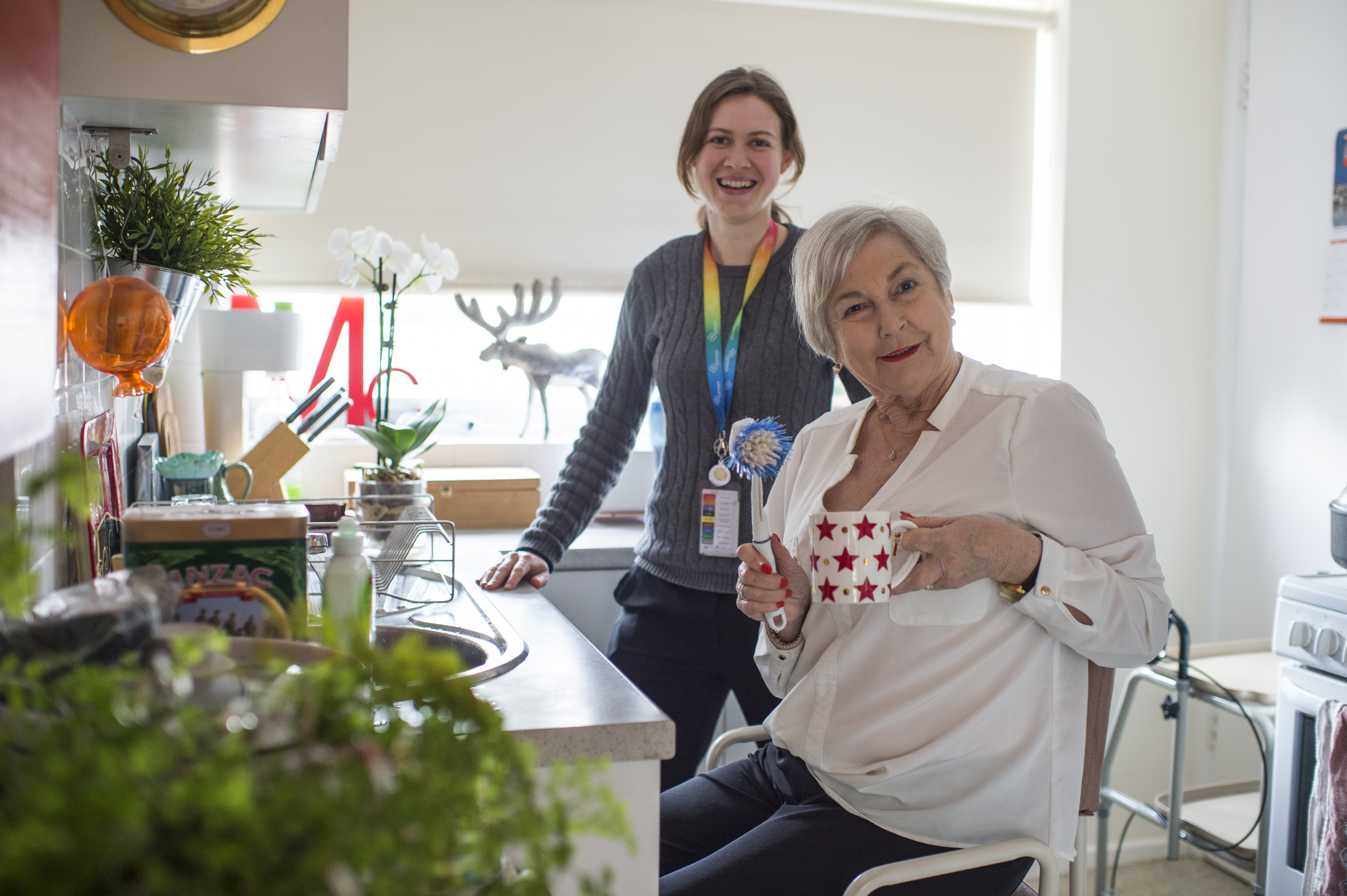On Monday, 20 July, our CEO, Amanda Murphy spoke on local radio program, "Glen Eira Working Together" to discuss how we are supporting our community through the coronavirus pandemic, the differences we are seeing between the first and second lockdowns and where people can seek help.
Amanda said there is a notable mental strain visible across all age-groups and encouraged those experiencing mental anguish to seek help.
Read more on the transcript below.
J-AIR Interview Transcript:
Connect Health & Community CEO, Amanda Murphy
Monday, 20 July, 2020
Intro from Maurice:
Welcome back to Glen Eira Working Together CEO of Connect Health and Community Amanda Murphy.
Amanda, please remind the listeners what Connect Health and Community does.
AMANDA:
- Connect Health & Community has been providing community health services to residents in the Glen Eira area regardless of financial status for more than 45 years. In fact, this year is the 45th anniversary of our operation from our site in Gardeners Rd, Bentleigh East.
- We provide allied health services including dental, physiotherapy, counselling, podiatry, community nursing, Gambler’s Help Southern, social support groups and community transport from sites in across south eastern Melbourne.
- We now also operate the Sandringham Ambulatory Care Centre that operates out of Sandringham Hospital Emergency providing GP and nursing care 365 days a week – treating acute injuries and illnesses - including fractures, sprains, lacerations, foreign bodies, wound care and general illnesses at - 193 Bluff Rd, Sandringham.
When we had you on back in May, you told us about the changes that Connect Health has had to make to your service provision – how have you been going now we are back in lockdown? Have you found any positives from changing the way you deliver services?
AMANDA:
- This second round of restrictions is certainly something that no-one wanted to return to, but it is obviously an essential step the community needs to take to help us get on top of the spread of the disease.
- Being the second time around, we have had to support the community during a time of essential restricted movement, we are better prepared this time, for something that was really ‘unknown’ the first time around.
- In fact, because we have been operating with heightened safety standards for our staff and clients for the past 4 months – not much has changed for us in service delivery this time around – except that we know what to expect.
- We have all the Personal Protective Equipment (PPE), the screening processes, the social distancing, the increased hygiene and strict infection control. We are now attuned to the needs of our community as they face a second round of this escalated health crisis that has the potential to affect us physically, mentally and financially.
We talked about Connect Health’s gambling programs last time you were here – what are you seeing now?
AMANDA:
- The second lockdown seems to be more difficult for many people compared with the first. That sense that there was “light at the end of the tunnel” with services reopening is gone and more people tend to be expressing a sense of hopelessness or depression that we are just existing rather, than living at the moment.
- There’s also a risk that “Lockdown Fatigue” is driving complacency across a range of behaviours where people are just not doing what they are supposed to be doing. This is especially so for people who live with challenging circumstances like alcohol or drug abuse.
- Screen fatigue is as issue some young people because the use screens for school, to socially interact and to entertain themselves. Technology tantrums are also being noted in younger children as they want more time on technology.
So what services is Connect Health & Community providing to help Glen Eira residents through this second round of lockdown?
AMANDA:
- We provide a range of allied health and counselling services to the community and certainly this time around we are seeing the mental strain of the situation reflected in our contact with the community.
- Our counselling includes general counselling services to support families (including services for marriage/family, youth and children) as well as therapeutic and financial counselling to support those struggling with gambling harm issues. Across our counselling services we have seen a 20% increase in counselling sessions during lockdown.
- We understand that the community is feeling quite strained at the moment. The personal isolation, inability to see family, fear of the virus itself and lockdown fatigue can be a challenging mix for people to grapple with.
- This is affecting members of the community differently. Many people are struggling with adjusting to the impact on lifestyle as a result of restrictions and threat of the virus. They have lost their inability to do things that made coping easier(e.g., going to the gym, seeing friends) This is causing an increase in stress, loneliness and exacerbating mental health issues.
- Inability to work/financial impacts means less choice and freedom for people who would like to change their housing arrangements which has had an impact on many things including an increase in family violence and general anxiety.
How are you preparing for a possible increase in demand?
AMANDA:
- I think it gives us a really interesting opportunity be able to review the way we provide services and rethink in a way we've never done before.
- To ensure we are there to help the community, we have made our services as accessible as possible, with continued face-to-face, telehealth and video support services.
- We provide welfare checks: Connect Health & Community counsellors are conducting welfare checks on existing and past clients. In our Social Support team, we have been able to provide delivery of items such as food, and breaking the barriers of conventional ways of doing things.
- Telehealth, delivered by telephone and video conferencing, has some provided some real positives, as well as being there for clients when they need us, the use of video has enabled practitioners to see clients in their home setting, enabling us to gain a better insight and provide better, practical advice.
- The community is now more used to telehealth for mental health assistance too, which means our counsellors are more flexible and clients are embracing using the telephone, in the car, on their walk etc, rather than having to travel in for a face-to-face appointment.
- While face-to-face will always be the preferred, telephone and video has resulted in measurable and beneficial outcomes for our clients.
- In fact, all our Gamblers Help therapeutic and financial counsellors have been working around the clock during Covid-19 to meet the increased demand for psychological and financial counselling services. We have seen a 130% increase in service delivery across Bayside, south-eastern metro Melbourne and the Mornington Peninsula, for our gambler’s help service.
- Interestingly, while have had a reduction in new clients, the demand from existing and past clients has escalated. We believe this is a result of the anxiety cycle and use of gambling as a distraction from their financial stress, only to find that that gambling then exacerbates that stress.
It is clear that no segment of the community is immune to the impacts of COVID-19. How are you finding the older members of the community are holding up?
AMANDA:
- For older members of the community, the level of anxiety is high as they are typically in a high-risk group. This is compounded because for those with an established family network, they are now isolated and their community connections are unavailable.
- Older members of the community are removed from their families, including their grandchildren who we know bring them great joy and purpose at this stage of their lives – so removing that creates a great void in their daily routines and personal fulfilment. As an organisation we do what we can by calling, dropping care packages, and keeping them connected as much as possible. Currently our Volunteers are still providing transport to medical appointments.
- We host a number of social support programs for older members of the community which is proving critical at this time to help reduce their isolation. While we can’t meet onsite as we normally would we are home delivering activity packs and undertaking phone check-ins with these more isolated members of our community.
- And because we are still open and providing services, we are still receiving referrals from health professionals for services like podiatry, physiotherapy, counselling, speech pathology, diet and nutrition. Encouraging people to maintain their health at his time.
The media is full of discussion about the mental health implications of returning to lock down.
What are you seeing at the coal face of service provision?
AMANDA:
- Lockdown fatigue is a concern, since many families are feeling isolated and restricted in what they can do. Obviously, most of us would be feeling sad and stressed about adjusting to the changes.
- While it is easy to get lost in the things that we cannot do, many of our counsellors are encouraging clients to focus more on what they can do to maintain their mental health. For example prioritising their daily social connection with family and friends remotely or by phone, staying healthy (regular exercise/diet/sleep), maintaining focus on positive past times and spending time outdoors – getting sun while we can.
- Obviously it is important to keep up with what is happening, but limit that news exposure, maintain routines, help others and very importantly, reach out if you need support.
- Some clients are finding that keeping a reflective journal has also help people measure how well they are adjusting.
- Hearteningly, some parts of our business are finding families in general are coping well with isolation with some reporting benefits such as spending more time together, cooking healthy meals and increasing exercise, more family time.
- Obviously though, others are reported financial worries from the reduction in work hours or job loss, and increasing anxiety in general about the future, about getting sick and being able to juggle work and home-schooling.
- Many of our child clients under 12 have coped very well with anxiety surrounding COVID, but largely reported that they struggled with independent learning.
QUICK MENTAL HEALTH HELP:
- One complicating factor about the pandemic is that the many moving parts of it (the health risk, the isolation, grief for our normal lives, the fatigue) all combined, can make everything seem overwhelming.
- BUT if we can find it with in ourselves to stop and break it down into smaller parts – it is a little easier to deal with. Beyond Blue has great resources online for instant access. One good one is called ’10 Ways To Take Care Of Yourself’ which is a lovely, guide to help us refocus our energies to help us overcome these challenges.
- I highly recommend listeners go online and find it, either for themselves or someone who perhaps may not have access to a computer to get these tips. And if you are older and don’t have access to a computer, ask someone to find it for you.
REF: https://coronavirus.beyondblue.org.au/managing-my-daily-life/coping-with-isolation-and-being-at-home/10-ways-to-take-care-of-yourself.html
- The Beyond Blue Mental Wellbeing Support Services offers 24hour counselling to families whose mental health has been impacted by the isolation - 1300 22 4636
- Other helpful websites for the community include the DHHS website, the state government’s Better Health Channel, the Raising Children Network, professional websites such as Speech Pathology Australia.
- And of course, Lifeline 13 11 14 is also available for those who need it.
YOUNG PEOPLE
Yes, I think your point about grief is a good one, possibly particularly for young people who may be reassessing the life they thought they would be living now, entering another period of remote learning, juggling all this with working from home? What are you seeing and what do you advise for them in this time?
AMANDA:
- Yes, Maurice, we know that young people are going to be disproportionately affected by the COVID-19 pandemic, and the measures that are needed to stop the spread of this deadly disease.
- Young people comprise a large proportion of Australia’s casual workforce. Many students and younger people working in retail and hospitality have lost their income, and are unable to continue their studies. Some younger people may be experiencing cognitive and emotional development issues. These people are vulnerable to experiencing psychological, financial, and housing stress in the short and longer terms.
- This is beyond anything they would have had to deal with before. They may have had to shelve their plans to travel and explore the world, had their work options dry up, have uncertainly about their studies (either secondary or tertiary), they miss their normal, regular social interactions and find themselves powerless – after being told for so long that their future was in their hands.
- The modelling shows that there may be a 25 per cent increase in suicides, and it is likely that about 30 per cent of those will be among young people. If the Australian economy deteriorates further, this could get worse.
- Youth mental health is something Connect Health & Community has long championed and supported through our health promotion and youth support services. As well as having specialist counsellors, we have been running a school mental health support program called Brain Box to help raise awareness of where year 12 students can gain mental health support and destigmatise youth mental health as an issue. BrainBox started with the new school year and was thrown its own challenges with COVID-19 but the benefits and ability to help the young people in our community has probably been boosted by that.
What is a key take away you would like listeners to have from your time with us today?
AMANDA:
- We are encouraging people to not delay seeking medical or healthcare support at this time.
- Unfortunately the nature of the pandemic requires us to limit our movements in the community, but eliminating your healthcare, physical or mental, is not something people should be doing.
- As mentioned earlier, we and the rest of the health industry, have modified our services to ensure the health and safety of our community so seeking healthcare should not be delayed.
- And where our services do not need to be provided in person, we like other healthcare providers, are able to provide telehealth and video support.
- Addressing your mental health is as important as your physical health.
- From the fear and threat caused by the virus itself, to the uncertainty around work situations and even the pressures arising from our personal situations in isolation – there are so many factors impacting our mental health, that it is critical we are aware of these and actively working to keep ourselves mentally strong. Connect Health provides counselling help for the entire family, from children to adults, relationship counselling, financial counselling and for those experiencing more extreme challenges.
- Another is the impact the necessary isolation is having on the community in terms of potential gambling harm. The past month or so has seen an increase in spending on line gambling, as people find themselves at home, with reduced ability to get out of the house, and potentially greater financial pressure with reduced income.
- We operate Gamblers Help Southern – Victoria’s largest gambling support organisation – which offers free, confidential support to anyone experiencing gambling harm – whether it is the gambler themselves, or their family or their friends. Our skilled counsellors know and understand the many challenges of gambling and are here to help from more than 13 sites across south-east Melbourne. You can call Gamblers Help Southern on 03) 9575 5353
So, I guess in summary my key message for our community is:
- Do not delay seeking help for any health issues you are experiencing in these challenging times
- Your mental health and physical health are both important, so stay connected to the services that can support both vital aspects of your life.
- We are here to help – and dedicated to keeping our community healthy and safe.
You can call Connect Health & Community on 03) 9575 5333.
Thank you, Maurice.



